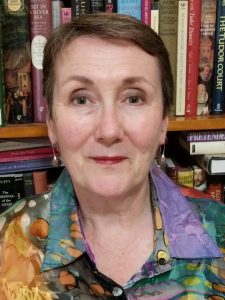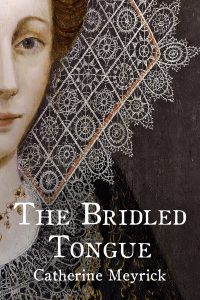This Too Shall Pass
 We read historical fiction for a range of reasons beyond the pleasure of being immersed in another time and place. It gives us the chance to see beyond the names and dates, acts of Parliament and movements of armies to the people who lived through the great moments of history. We are led to imagine the inner lives of these people as they faced the challenges of their times, particularly those whose lives are rarely documented – the laboring classes, women, people of color, the poor.
We read historical fiction for a range of reasons beyond the pleasure of being immersed in another time and place. It gives us the chance to see beyond the names and dates, acts of Parliament and movements of armies to the people who lived through the great moments of history. We are led to imagine the inner lives of these people as they faced the challenges of their times, particularly those whose lives are rarely documented – the laboring classes, women, people of color, the poor.
When authors imagine these ordinary lives, they draw on the glimpses found in official records and their own deep study of past times and societies. Often, we come to see that those who lived in the centuries before us were not unlike ourselves. They may have dressed and spoken differently and, at times, held attitudes that more than give us pause, but still they had the same basic human needs as us – for food and shelter, love and comfort, and hope for survival into a better future. And they faced threats and struggles that we recognize, from the horrors of war, pestilence, persecution and dearth through to more personal battles to have more say in life than their time and place generally allowed.
Suzanna Watson was an ordinary woman buffeted by the forces of 19th century industrialization and attitudes to poverty and crime. In A Cargo of Women: The Novel (Pan Macmillan, 1991) Babette Smith, Suzannah’s great-great granddaughter, retells her life. Susannah was transported to New South Wales in 1829 having stolen to feed her children.
She was one among the 25,566 women transported to Australia. These women survived the heartbreak of leaving husbands, children and wider family behind; the terrors of the four-month sea journey cramped in the hold of a wooden ship; the privations, violence and dislocation of convict life in a strange land. It seems enough to make a person lie down and turn their face to the wall yet most, like Susannah, did not give up. They served their sentences, married, and raised families. Some achieved lives of comfort, others struggled all their lives, yet others still sent messages ‘home’ recommending family follow them, even if it meant burning a hayrick and spending a few years in penal servitude.
So often over the centuries when men have gone off to fight in other lands, women have waited at home, gripped by both fear and aching absence. Anna Hope’s novel Wake (Doubleday, 2014) deals with the endless suffering experienced by women whose menfolk never returned. Wake is set in November 1920, two years after the end of World War 1, a war that left 20 million people dead and 21 million wounded and deeply marked.
The novel follows the journey of the Unknown Warrior from his anonymous grave in France to his burial in Westminster Abbey on Armistice Day. The account is interwoven with the emotional journey of three women struggling to deal with loss – Ada, haunted by her son’s death; Evelyn, grieving for her lover; and Hettie whose father is dead of the Spanish ’flu and her brother shell-shocked and catatonic. The narrative shows the ordinary lives of these women as they struggle beneath the immense burden of grief carried by those who survived the Great War.
My most recent novel, The Bridled Tongue (Courante, 2020), begins in 1586 with England under threat from Catholic plots at home and Spanish invasions plans abroad. When Alyce Bradley enters an arranged marriage to a wealthy privateer, old resentments are stirred up and rumors abound surrounding Alyce’s involvement in witchcraft. It is a time when gossip runs wild and, fueled by jealousy, old grudges and superstition, is enough to propel a woman toward the gallows with little chance of defending herself.
At the beginning of The Mirror and the Light by Hilary Mantel (Fourth Estate, 2020), even as Anne Boleyn mounts the steps to the block, she looks over her shoulder, hoping, perhaps, that Henry will relent. Of course, with the benefit of our historical knowledge, we know that he will not but we understand deeply why Anne would cling that hope.
The worst of times do end, though we are changed by them. We see this clearly in these historical novels. The burial of the Unknown Warrior brings some comfort to all three women in Wake, standing in place for those they have lost but could not bury, and providing a glimmer of hope that eventually their burden will lighten, although life will never be as it was before. Alyce Bradley, despite the logic of accepting a fate she believes is inevitable, cannot extinguish the hope that is innate to the human condition. And Susannah Watson, having suffered and lost so much, still came to think of her transportation as the best thing that had happened to her, though she wished that her first husband had been able to join her. She died, aged eighty-three, in her own bed singing “Rock of Ages” – a woman whose life was the embodiment of survival and of hope.
It is often said that the only thing we learn from history is that we never learn from history. I am not so sure. When we read plausibly imagined historical fiction we walk with people of the past, feel as they do, vicariously experience the challenges of their times, and share their hopes and dreams. We can gain comfort, too, by seeing that no matter how grim the situation, how seemingly insurmountable the obstacles or how abject the failures along the way, hope is never completely given up.
—
Social Media
Instagram: @catherinemeyrickhistorical
Twitter: @cameyrick1
Facebook: CatherineMeyrickAuthor
—
Biography
Catherine Meyrick is a writer of historical fiction with a particular love of Elizabethan England. Her stories weave fictional characters into the gaps within the historical record – tales of ordinary people who are very much men and women of their time, yet in so many ways not unlike ourselves.
Although she grew up in regional Victoria, Australia, she has lived all her adult life in Melbourne. She has worked as a nurse, a tax assessor and finally a librarian. She has a Master of Arts in history and is also a family history obsessive.
THE BRIDLED TONGUE
England 1586.
Alyce Bradley has few choices when her father decides it is time she marry as many refuse to see her as other than the girl she once was–unruly, outspoken and close to her grandmother, a woman suspected of witchcraft.
Thomas Granville, an ambitious privateer, inspires fierce loyalty in those close to him and hatred in those he has crossed. Beyond a large dowry, he is seeking a virtuous and dutiful wife. Neither he nor Alyce expect more from marriage than mutual courtesy and respect.
 As the King of Spain launches his great armada and England braces for invasion, Alyce must confront closer dangers from both her own and Thomas’s past, threats that could not only destroy her hopes of love and happiness but her life. And Thomas is powerless to help.
As the King of Spain launches his great armada and England braces for invasion, Alyce must confront closer dangers from both her own and Thomas’s past, threats that could not only destroy her hopes of love and happiness but her life. And Thomas is powerless to help.
‘People never forget. When the fancy takes them, they bring the old stories out and embroider them further.’
B.R.A.G. Medallion Honoree – 2020
BUY THE BOOK HERE
Category: On Writing

























Yes to what you are saying. Some of us do learn, do stop and think. I was in Greece a long time ago standing on a hill and thinking it was no different three thousand years before, or was it. History should inspire us, awe us into thinking we need to preserve not destroy. Great post.
Thank you for this essay. There is much to be learned from survivors. There is a small town in Virgina that lost more young boys in WWII per capital than any other town in the US. It was not talked about for years, the survivors kept silent. In the 80s a young student heard about it and wrote an article in which she said she’d wished they’d spoken about their experiences for had young people known what they’d survived they would have felt much more hopeful about what they could endure. And they would have complained much less about the little things. All very relevant today when people complain about having to wear a mask.